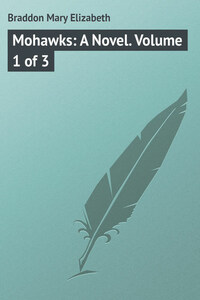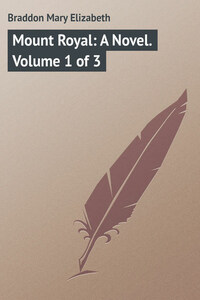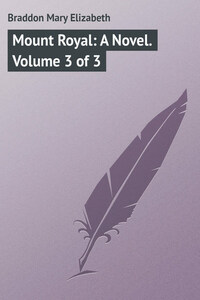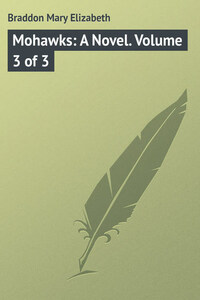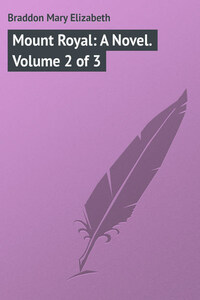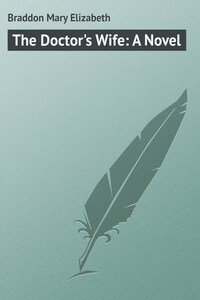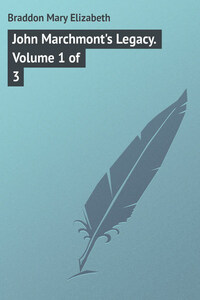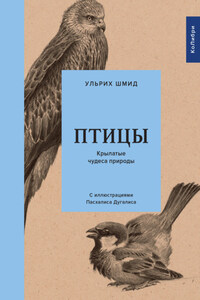CHAPTER I
"ONE THAT DOTH WEAR HIMSELF AWAY IN LONENESS."
"Nothing?" asked the farmer, standing upon a heathery knoll, with his gun under his arm, and his two clever spaniels, Nell and Beauty, crouched dutifully at his feet.
"Nothing but this," answered the farmer's man, holding up a bundle of papers – pamphlets and manuscripts – dirty, crumpled, worn as if with much carrying to and fro over the face of the earth. They were tied up in a ragged old cotton handkerchief, and they had been carried in the breast-pocket of yonder wayfarer who lay stark and stiff, with his dead face staring up at the bright blue sky of early morning. A little child, a mere baby, lay asleep beside him, nestling against the arm that would never again shelter or defend her.
It was a bright clear morning late in September, just one hundred and seventy-seven years ago, the year of the battle of Malplaquet, and the earth was so much the younger and fairer by all those years – innocent of railroads, speculating builders, gasworks, dust-destructors, sewage-farms, and telephones – a primitive world, almost in the infancy of civilisation as it seems to us, looking back upon those slow-pacing days from this age of improvement, invention, transmutation, and general enlightenment.
It was a year for ever memorable in history. The bloody battle of Malplaquet had but just been fought: a deluge of blood had been spilt, and another great victory scored by the allies, at a cost of twenty thousand slain. Brilliant as that victory had been, there were some who felt that Marlborough's glory was waning. He was no longer in the flush and floodtide of popularity. There were those who grudged him his well-won honours, his ducal coronet, and palace at Woodstock. There were those who feared his ambition, lest he should make himself a military dictator, a second Cromwell, or even aspire to the crown. If ever England seemed ripe for an elective monarchy or a republic, it was surely just at this critical period: when widowed, childless Anne was wavering in the choice of her successor, and when poor young Perkin, the sole representative of legitimate royalty, was the chosen subject for every libellous ballad and every obscene caricature of the day.
Very fair to look upon was Flamestead Common upon that September morning, purple with heather, flecked here and there with golden patches of the dwarf furze that flowers in the late summer, and with here and there a glistening water-pool. The place where the dead man lay, stretched on a bank of sunburnt moss and short tawny turf, was at the junction of four roads. First, the broad high-road from London to Portsmouth, stretching on like a silvery ribbon over hill and valley, right and left of the little group yonder – the dead man and the sleeping child, and the two living men looking down at them both, burly farmer in stout gray homespun, and his hind in smock-frock and leather gaiters, a costume that has changed but little within the last two hundred years.
The labourer had left his bush-harrow in a field hard by the common at the call of his master, shouting from the little knoll above the road. Matthew Bowman, the farmer, trudging across the common in the dewy morning-tide, bent on a little partridge-shooting in the turnips on the other side of this heathery waste, had lighted on this piteous group – a tramp, lying dead by the wayside, and an infant, unconscious of its desolation, lying asleep beside him.
What was to be done? Who was to take care of the dead, or the living? Neither could very well be left by the wayside. Something must be done, assuredly; but Matthew Bowman had no clear idea of what to do with father or child. He had made up his mind that the baby owned that dead man as father.
"You'd best take the little one home to my missus," he said at last, "and I'll go on to Flamestead and send the constable to look after this."
He pointed to the gaunt, ghastly figure, with bony limbs sharply defined beneath scantiest covering. A vagrant wayfarer, whose life for a long time past must have been little better than starvation, and at last the boundary-line between existence and non-existence had been passed, and the hapless wretch had sunk, wasted and famished, on the king's highway.
"What are you going to do with that baby, Bowman?" demanded an authoritative voice on the higher ground above that little knoll where the farmer was standing.
Bowman looked up, and recognised one who was a power in that part of the world; all the more powerful, perhaps, because his influence rarely took a benignant form, because it was the way of his life to hold his fellow-men aloof, to exact all and to grant nothing.
This was Squire Bosworth, Lord of the Manor of Flamestead and Fairmile, owner of the greater part of the land within ten miles of this hillocky wilderness, and a notorious misanthrope and miser; shunned by the gentlefolks of the neighbourhood as half-eccentric and half-savage, feared and hated by the peasantry, distrusted and scrupulously obeyed by his tenants.
